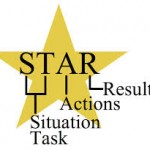 In a behavioral interview, it’s much more difficult for an applicant to “make up” responses that are untrue to his/her character. The behavioral interviewer typically will pick the applicant’s narrative to try to get an understanding of the applicant’s specific behavior(s). The interviewer will probe further for more depth or detail such as “Tell me more about your meeting with that difficult colleague,” or “Walk me through the decision making process you used”…
In a behavioral interview, it’s much more difficult for an applicant to “make up” responses that are untrue to his/her character. The behavioral interviewer typically will pick the applicant’s narrative to try to get an understanding of the applicant’s specific behavior(s). The interviewer will probe further for more depth or detail such as “Tell me more about your meeting with that difficult colleague,” or “Walk me through the decision making process you used”…
If an applicant is not being upfront and honest and is simply making up responses, it will be really difficult to stay consistent with a battery of questions about past behavior.
The idea behind behavioral interviewing is that the most accurate predictor of future performance is not what the applicant claims he/she can do in a situation in the future, it is past behavior and performance in similar situations. It is said that behavioral interviewing can be 55 percent predictive of future on-the-job behavior. Contrast this to traditional interviewing which is said to be only 10 percent predictive.
Recruiters use the behavioral-interview technique to assess an applicant’s previous experience, performance and behavior so they can form a view about the applicant’s potential for success. The interviewer asks very specific questions that are directly linked to the needs of a particular job position.
Some of the kinds of attributes that employers seek to identify and assess in an applicant include:
Initiative
Problem solving skills
Self-confidence
Ability to work in a team etc
Behavioral interview questions tend to be pointed questions that seek to get answers on how a candidate behaved in a particular kind of situation. For example, “please describe a situation that was stressful and how you managed to stay on top of it”.
The STAR (Situation, Task, Action, Result) is one kind of behavioral interview technique used to gather relevant information about a specific capability that the job requires. It works as follows:
Situation: The interviewer asks the applicant to talk about a recent challenging situation
Task: What was the task that the applicant had to complete or cope with?
Action: What did the applicant do, how did he/she do it and why this particular action?
Results: What was the outcome of the above action and what did the applicant learn or gain from that experience?
Such interviews are also “structured” – in other words, there is a defined methodology about what questions will be asked, how the answers will be rated, who will ask these etc. In structured interviews, all the candidates are asked essentially the same questions so that there is a uniform set of criteria to evaluate responses from all applicants.
This topic is also covered in the Diploma in Management and Leadership

Leave a Reply